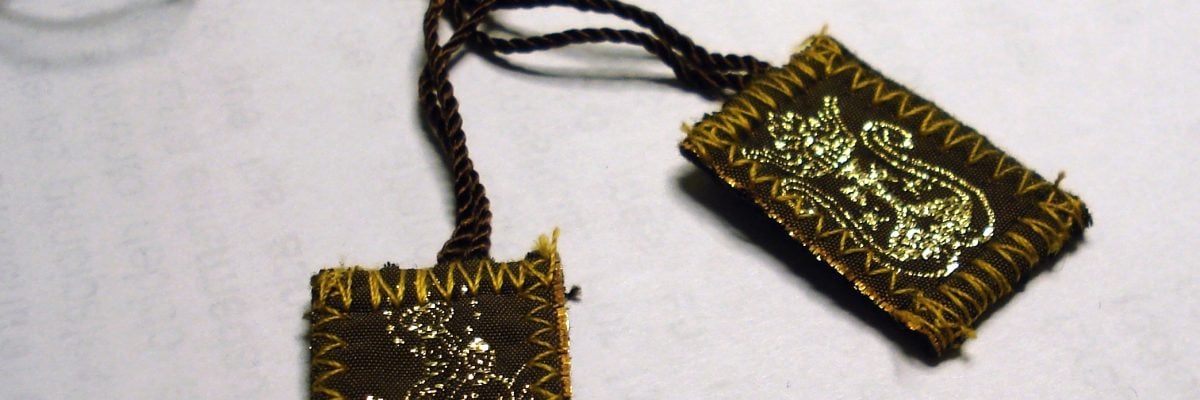
Question:
Answer:
First, not all Protestant Christians believe in once saved/always saved—also known as “eternal security.” As the phrase implies, many Protestants mistakenly believe that once they profess faith in Jesus Christ, they cannot lose their salvation, in part by isolating and misunderstanding Romans 10:9-10.
In contrast, the scapular—which originated in the Carmelite order—is not some kind of salvific “lucky charm,” contrary to popular myth regarding this Catholic sacramental. In short, the Church teaches, and the Carmelites agree, that one must persevere to the end to be saved (Matt. 7:21-23, 24:13; Rev. 2:10) and that all salvation comes by Jesus Christ and through his Church (see the Catechism 846-848). Wearing the scapular faithfully is meant as a helpful reminder to aid the cause.



